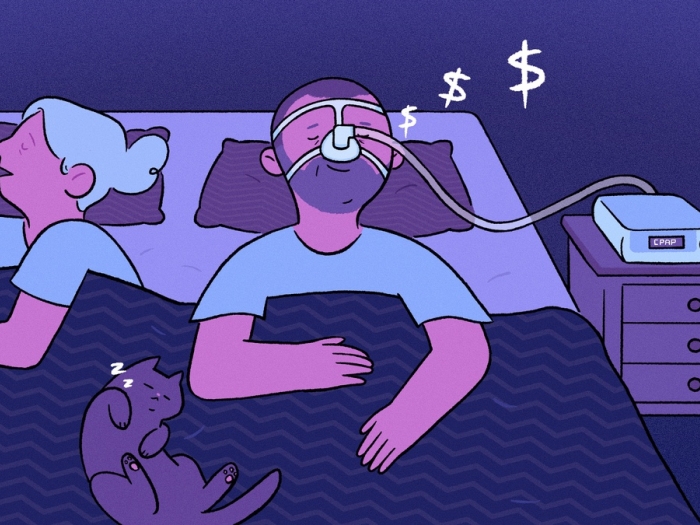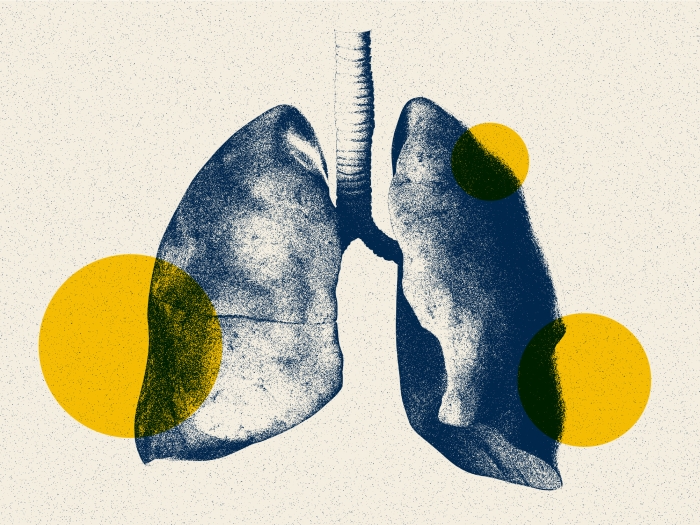A novel service aims to combat health care disparities
12:03 PM
Author |

Recently, Michigan Medicine established the Healthcare Equity Consult Service. However, the idea for the consult service began long before that.
When the COVID-19 pandemic shined a light on health care disparities across the country, leadership at the hospital wanted a better understanding of what was happening at University of Michigan Health in regard to health care equity.
During the pandemic, Susan Moore, M.D., a U-M Medical School graduate, recorded her concerns about racism impacting her care during her inpatient stay at an Indiana hospital.
Moved by her story and untimely death, David Brown, M.D., associate vice president and associate dean for health equity and inclusion, and Erika Newman, M.D., associate professor of pediatric surgery, who was serving in her former role as the associate chief clinical officer for health equity within the U-M Medical Group, brought forward the concept of health equity as a clinical consult service at U-M Health.
Concerning trends
Newman found concerning trends at U-M Health, such as the frequency of security calls on minority patients and families, and COVID-19 exceptions frequently granted to certain populations and not to others.
Newman also saw a trend of Black patients at high risk for inequitable access to procedural care due to social determinants of health factors (i.e., disparities in historical and present access to housing, education, employment, and food).
To combat these trends, and provide equitable care for all patients and families, the Healthcare Equity Consult Service was born and a pilot program in the inpatient areas was soon launched.
“The lessons learned from these experiences with patients, families and clinical care team members are influencing our health system's policies, practices and training of clinicians aligns with our BASE priorities and goals,” said Okeoma Mmeje, M.D., M.P.H., after taking on the role of associate chief clinical officer for health equity.
A model service
The goal of leadership is not only to improve and serve patients and families at U-M Health, but also to serve as a model to hospitals and health systems across the country.
The early experience of this service is being shared with various clinical care teams, trainees and health system stakeholders during educational sessions and grand rounds sessions.
“Most of the requests we receive come from faculty and staff,” said Kamau Ayubbi, staff chaplain and program manager.
“They notice something is different about the patient’s care and request support.”
This formal structure established for patients and providers has provided opportunities for care teams to address concerns of bias and alleged discrimination in clinical care.
“The program is creating these safe spaces, coming to these conversations with compassion and authenticity,” said Prianka Shakil-Brown, clinical social worker and a program manager.
“Some of these conversations really are difficult and make people uncomfortable, but without working our way through those kinds of uncomfortable, difficult conversations, we can't get to the other side of … addressing health care inequity.”
Language matters
While individual circumstances differ, certain themes such as the use of stigmatizing language in the medical record, perceptions of pain and inadequate pain management in certain populations, and a lack of shared decision making have emerged as trends from the Healthcare Equity Consult Service cases.
“Our language itself can be quite stigmatizing and holds some bias – and that can also speak volumes to that person's admission and even future admissions to come,” said Samantha Guyah, the consult service’s manager and a clinical social worker.
The case managers stress that care teams must consider the whole person when the patient presents themselves.
Their histories and stories impact how they interact with the care team and how their conditions are managed, which impacts their clinical care experience and outcomes.
Taking time to understand the full narrative of a patient improves their health care experience and outcomes.
A more complete narrative can also help combat providers’ conscious and unconscious biases and perceptions.
This story originally ran in Michigan Medicine’s internal publication Headlines. Navya Yerrapu additionally edited the piece to appear on Health Lab.
Sign up for Health Lab newsletters today. Get medical tips from top experts and learn about new scientific discoveries every week by subscribing to Health Lab’s two newsletters, Health & Wellness and Research & Innovation.
Sign up for the Health Lab Podcast: Add us on Spotify, Apple Podcasts or wherever you get you listen to your favorite shows.

Explore a variety of health care news & stories by visiting the Health Lab home page for more articles.

Department of Communication at Michigan Medicine
Want top health & research news weekly? Sign up for Health Lab’s newsletters today!





